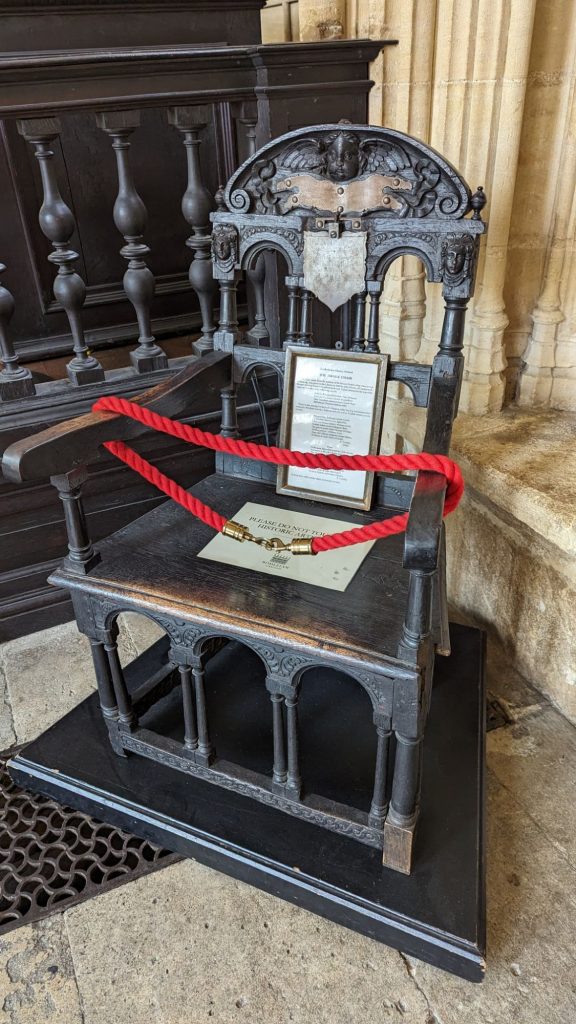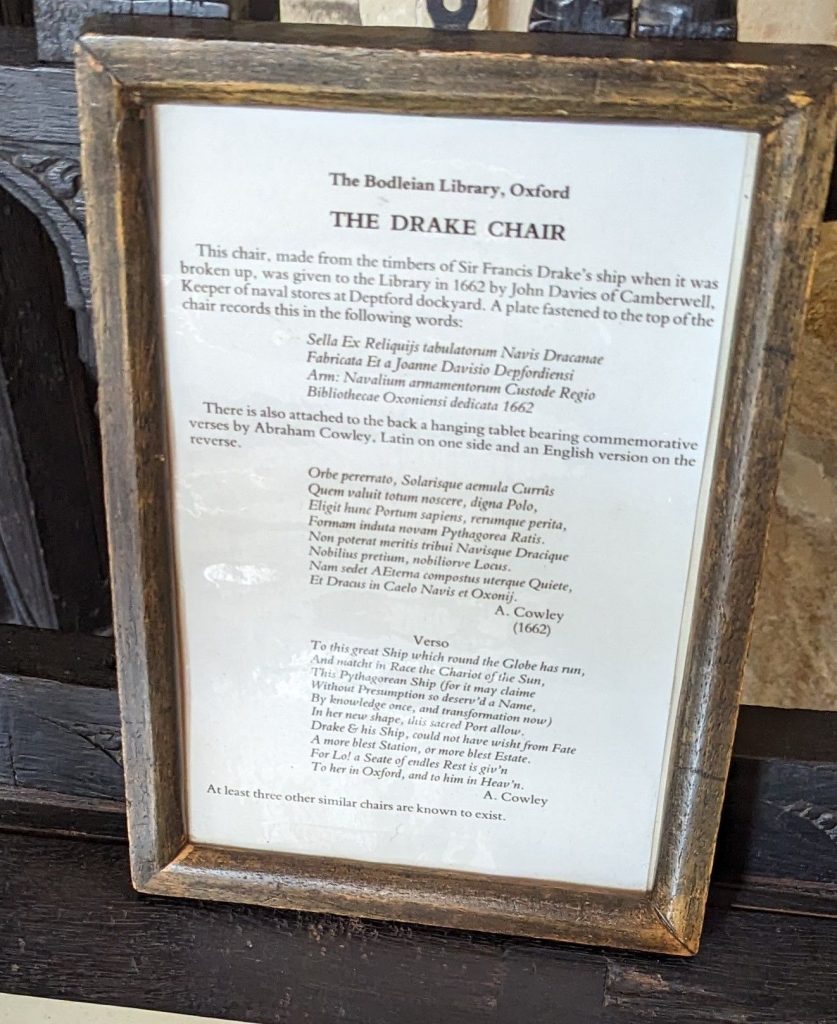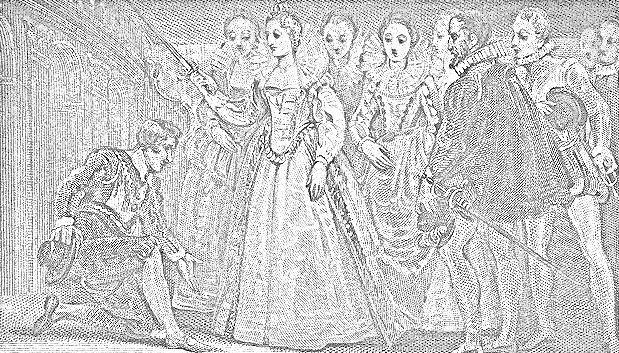
The Queen’s half share in the profits of the Golden Hind’s circumnavigation of the world, amounted to more than her normal annual income. So it is no wonder she knighted the Captain, Sir Frances Drake, in the dock in what is now South East London at Deptford. The Spanish were furious that a Pirate should be so honoured. The Queen may have given a French man the honour of dubbing Sir Francis to align the French more with the English against the Spanish.
Drake was one of the British heroes I read about as a child. I had a thick book with stories about people like Hereward the Wake, Drake, Charles II, Bonny Prince Charlie, and David Livingstone. Drake was remembered for being the first English person to sail around the world, and his exploits in ‘singeing the beard of the King of Spain’ and his piratical raids on the Spanish Main. In these books, the Spanish were the bad guys and we were the good ones. Drake was one of a brand of swash-buckling heroes who turned Britain from a not very important country on the edge of Europe, to one of the World’s Great Powers.

On the other hand, he was also a pioneer in the Slave Trade, was involved in atrocities in Ireland and in the Spanish Territories, and had one of his crew executed in dubious circumstances. Perhaps more significantly, his contemporaries did not entirely trust him.
On the first days of contact between the British Navy and the Spanish Armada, he was tasked with leading the nightime pursuit of the Armada up the Channel. The idea was to stop them landing and to drive them away and into the North Sea. Drake in the Revenge was leading the pursuit, and the other ships were told to follow a single lantern kept alight in the stern of Drake’s ship. The light went out, and the British pursuit was disrupted. The next morning Drake comes back having captured the disabled Spanish galleon Nuestra Señora del Rosario, flagship of Admiral Pedro de Valdés, and substantial gold to pay the Spanish Armada.
In the end, the lantern incident did not stop the British forcing the Spanish to flee around the North of Scotland, upon which perilous voyage only about 60 of their ships returned to Spain out of about 130. Britain was saved.
The Nuestra Señora del Rosario and its crew were taken to Torre Abbey, Torbay and imprisoned. The Abbey is now a lovely museum with an Agatha Christie Poison Garden amidst the ruins of the Premonstratensian Abbey. Its tithe barn was used to hold 397 prisoners of war from the Spanish Armada in 1588.
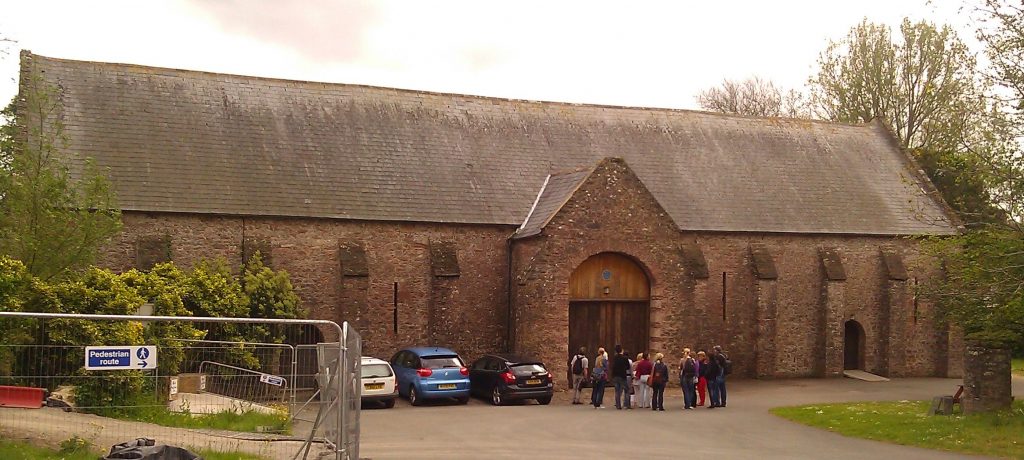
Sir John Gilbert, who was Sheriff of Devon at the time also used 160 Spanish Prisoners of War to develop his estate above the River Dart which is now enjoyed by those millions of visitors to what became the summer home of Agatha Christie (Greenway).
Queen Elizabeth I decided that the Golden Hind should be permanently docked in Deptford, and the ship was placed in a ‘dry’ dock filled with soil until the ship decayed slowly with time, and by about 1660 nothing much was left.
I remember as a young archaeologist that some of our team took time out to work with Peter Marsden, one of the great experts in Naval archaeology, leading a search to find Drake’s ship. There was a huge fanfare in the London newspapers, but, rather embarrassingly, given the build up, they failed to find anything of significance. Another attempt was made in 2012, but the prize of the discovery of a largely intact Elizabethan Galleon was not made.
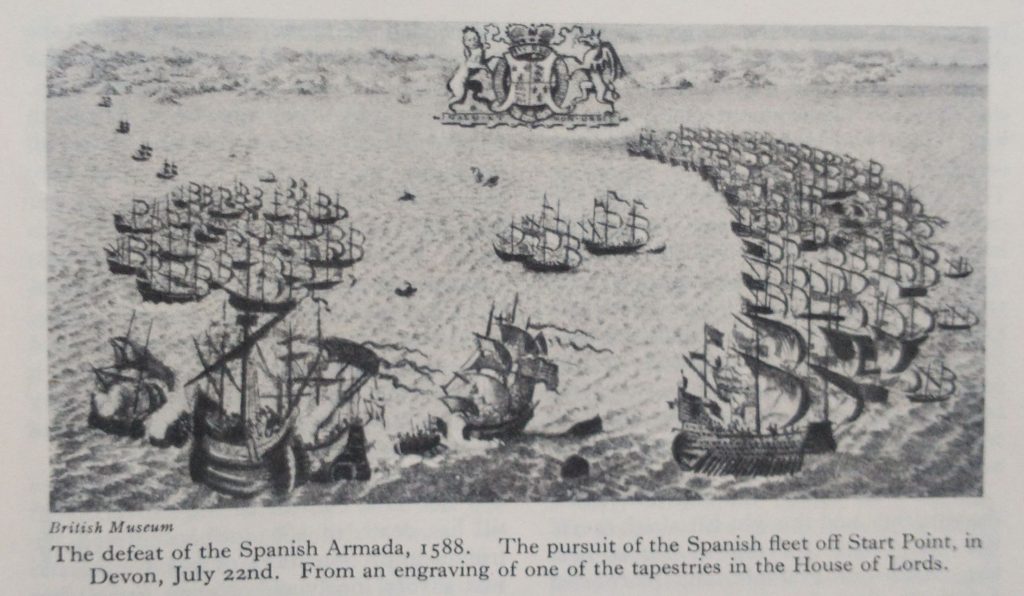
The Keeper of the Naval Stores at Deptford made chairs from the ruins of Drakes ship, and one of the three said to have been made is on display at the Divinity Hall, Oxford.
